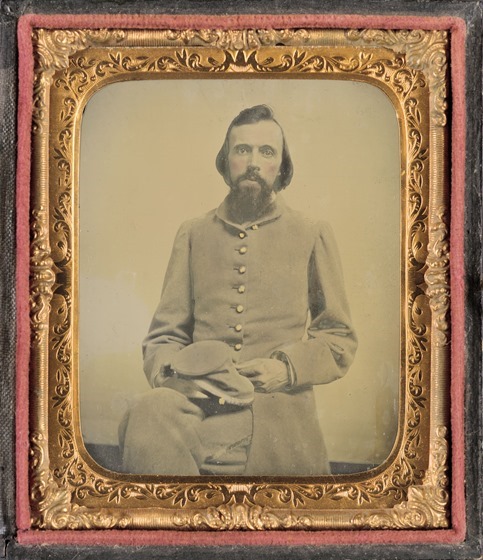Montgomery, July 30th.—Coming on here from Portland there was no stateroom for me. My mother alone had one. My aunt and I sat nodding in armchairs, for the floors and sofas were covered with sleepers, too. On the floor that night, so hot that even a little covering of clothes could not be borne, lay a motley crew. Black, white, and yellow disported themselves in promiscuous array. Children and their nurses, bared to the view, were wrapped in the profoundest slumber. No caste prejudices were here. Neither Garrison, John Brown, nor Gerrit Smith ever dreamed of equality more untrammeled. A crow-black, enormously fat negro man waddled in every now and then to look after the lamps. The atmosphere of that cabin was stifling, and the sight of those figures on the floor did not make it more tolerable. So we soon escaped and sat out near the guards.
The next day was the very hottest I have ever known. One supreme consolation was the watermelons, the very finest, and the ice. A very handsome woman, whom I did not know, rehearsed all our disasters in the field. And then, as if she held me responsible, she faced me furiously, “And where are our big men?” “Whom do you mean?” “I mean our leaders, the men we have a right to look to to save us. They got us into this scrape. Let them get us out of it. Where are our big men?” I sympathized with her and understood her, but I answered lightly, “I do not know the exact size you want them.”
Here in Montgomery, we have been so hospitably received. Ye gods! how those women talked! and all at the same time! They put me under the care of General Dick Taylor’s brother-in-law, a Mr. Gordon, who married one of the Beranges. A very pleasant arrangement it was for me. He was kind and attentive and vastly agreeable with his New Orleans anecdotes. On the first of last January all his servants left him but four. To these faithful few he gave free papers at once, that they might lose naught by loyalty should the Confederates come into authority once more. He paid high wages and things worked smoothly for some weeks. One day his wife saw some Yankee officers’ cards on a table, and said to her maid, “I did not know any of these people had called?”
”Oh, Miss!” the maid replied,” they come to see me, and I have been waiting to tell you. It is too hard! I can not do it! I can not dance with those nice gentlemen at night at our Union Balls and then come here and be your servant the next day. I can’t!” “So,” said Mr. Gordon, “freedom must be followed by fraternity and equality.” One by one the faithful few slipped away and the family were left to their own devices. Why not?
When General Dick Taylor’s place was sacked his negroes moved down to Algiers, a village near New Orleans. An old woman came to Mr. Gordon to say that these negroes wanted him to get word to “Mars Dick” that they were dying of disease and starvation; thirty had died that day. Dick Taylor’s help being out of the question, Mr. Gordon applied to a Federal officer. He found this one not a philanthropist, but a cynic, who said: ”All right; it is working out as I expected. Improve negroes and Indians off the continent. Their strong men we put in the army. The rest will disappear.”
Joe Johnston can sulk. As he is sent West, he says, “They may give Lee the army Joe Johnston trained.” Lee is reaping where he sowed, he thinks, but then he was backing straight through Richmond when they stopped his retreating.











